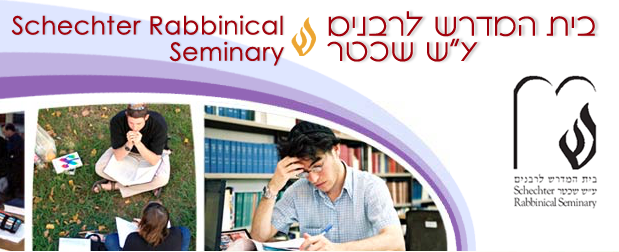Ki Tavo 5776 – Religious Pluralism in Israel
There’s a country where Jews have been arrested for putting on a tallis or tefillin.
There’s a country that has confiscated sifrei Torah from Jews as contraband.
There’s a country where Jews are not free to practice their religion according to their beliefs and customs.
There’s a country where it’s against the law for Jews to marry someone outside of their faith.
That country is Israel. My home.
As y’all know, I love Israel. It’s an amazing place, it’s a vital place, it’s a beautiful and exciting place.
But the fact that there is no freedom of religion for Jews in Israel is infuriating, exasperating, and insulting.
I did not exaggerate with what I just said.
My friend, Rabbi Susan Silverman, and her daughter, Hallel, were arrested in February, 2013 for daring to wear a tallis at the Western Wall, the holiest place in the world for Jews. The crime wasn’t directly “wearing a tallis.” The crime was “offending the religious sensibilities of others.” Because the ultra-Orthodox are offended by the idea of women wearing a tallis or tefillin. Never mind that Rashi’s daughters put on tallis and tefillin nearly 1,000 years ago. And never mind that MY religious sensibilities are offended by many of THEIR customs. You might have heard about that case – it got a fair amount of press coverage when Susan’s more famous sister, the comedian Sarah Silverman, tweeted about her sister and niece’s arrest.
My daughter Devorah has been an activist with Women of the Wall for years. If you click the link, you’ll see her picture on their home page. She decided to have one of her bat mitzvah ceremonies at the Kotel with Women of the Wall (in Israel many people do two ceremonies, one on Shabbat and one during the week). Women of the Wall had been getting more aggressive about trying to bring in a Torah to read from; the ultra-Orthodox were upset, and they bussed in ultra-Orthodox girls and yeshiva boys to disrupt the ceremony. We had 5,000 uninvited haredi guests at her bat mitzvah. I’m just glad I didn’t have to buy bagels for all of them!
Intermarriage is effectively illegal in Israel: there’s no way for a couple consisting of an Israeli Jew and an Israeli Muslim or Christian to get married in Israel. While many rabbis encourage Jews to marry other Jews, making intermarriage illegal is not the way to address the issue.
Not only that, if a Kohen, a man descended from the priestly class, wants to marry a woman who’s been divorced, he’s out of luck. Such a marriage is effectively illegal in Israel. The couple has to leave the country to get married. Same thing if he wants to marry a convert.
I have two sets of Israeli friends who got married outside of Israel even though they all met the exacting requirements of the ultra-Orthodox authorities because they didn’t want to deal with the coercive way they do things, and they wanted to be married by the rabbi of their choice, not an ultra-Orthodox rabbi approved by the government. On the one hand, it was fun for me to have an excuse to travel to Scotland and the Czech Republic to go to weddings, and it was fun to officiate at a wedding in Southern Bohemia. But isn’t it kind of crazy?
Last year an arrest warrant was issued for a female rabbinical student, Nathalie Lastreger, because she refused to go to the ultra-Orthodox court to receive a divorce document from her husband. She insisted she wanted a Conservative divorce, because that’s what was in their pre-nup agreement. She was found in contempt of court.
There are cases where local government rabbis hhiave refused to register a couple for marriage because one of the partners was a convert – even in cases where the conversion was approved by the Chief Rabbinate in Israel!
And it’s not just converts who have problems. Hillary Rubin, a Detroit native who’s a great-great-niece of prominent Zionist Nahum Sokolow made aliyah and when she tried to get married she was told she had to prove her Jewishness going back four generations. As an article in Haaretz described it:
Rubin, who was raised in a Conservative household, produced letters from four Conservative rabbis and one Chabad rabbi attesting to her Jewishness. But the Herzliya Rabbinate said the letters were not enough and asked her to bring ketubot, or religious wedding contracts, as well as birth or death certificates of her mother, grandmother, great-grandmother and great-great-grandmother.
It was made very clear that without ketubot and without birth certificates from four generations, I would need to go to the Beit Din [local rabbinical court],” Rubin told Anglo File this week. “I told him, time and time again, that my grandparents are Shoah survivors [and thus their ketubot no longer exist] and I was told that wasn’t his problem.
How many of you could find documentation of your Jewishness going back four generations?
Here are a few shocking statistics:
- There are 660,000 Israelis who are not able to get married within the state of Israel because they can’t prove to the satisfaction of the ultra-Orthodox rabbinate that they are Jewish, and they have no other religion. Over half of them are from Russia.
- 20% of all Israelis choose to get married outside of Israel rather than deal with the rabanut.
- 95% of all secular Jews are dissatisfied with the ultra-Orthodox religious authorities
- 74% of Israeli Jews would like to be able to have an egalitarian wedding – something that is currently not legally available in Israel.
As a Conservative rabbi, I can officiate at a legally recognized wedding pretty much anywhere in the world outside of the countries where Jews are banned, such as Saudi Arabia – except for Israel. If I were to officiate at a Jewish wedding in Israel where there was no civil ceremony overseas first, both the couple and I could theoretically be arrested and put in jail for two years.
How did this come about? And what can we do about it?
This intolerable situation has existed since the founding of the State of Israel. The main founders of the country – David Ben-Gurion and his team – were all secular. They weren’t religious at all. They didn’t keep kosher and they didn’t observe the Sabbath. Religion wasn’t important to them. But the votes of the religious people – THAT was important. So they willingly conceded everything in the realm of religion and personal status to the ultra-Orthodox in exchange for their support in forming a government. And in the last 68 years there has never been a government strong enough and passionate enough about the issue to overturn that history.
One of the greatest tragedies about the current situation is that it has turned so many Israelis off to Judaism. Seeing the ultra-Orthodox as the “face of Judaism” has led many secular Israelis to decide they want nothing to do with Judaism – which is truly a pity, for there is another face to Judaism, an egalitarian, inclusive, part of the modern world Judaism.
There is something we can do about the situation, even from here in America.
We can support religious pluralism in Israel. We can support institutions that share our values.
One such institution is the Schechter Rabbinical Seminarymaso or Beit Midrash in Jerusalem. I’ve had the honor of serving on the board of governors of the school for the last several years, and for the last year I served as chair of the Executive Committee.
The Beit Midrash is the Conservative Movement’s rabbinical school in Israel. Its graduates are automatically eligible for membership in the Conservative Movement’s Rabbinical Assembly, the same as graduates of JTS in New York or the Ziegler School in Los Angeles.
There’s a misconception that Israeli Jews are either totally secular or totally religious. That’s not exactly true. About 20% of Israelis are “religious,” they observe Shabbat and kashrut in a traditional way. There’s another 20% that are strictly secular, who never do anything religious. And the other 60% is somewhere in the middle, similar to many American Jews. They may light candles and have a Shabbat meal on Friday night, and after dinner they may go out to a bar or a movie.
Too many of that 60% are being turned off by the approach of the ultra-Orthodox in Israel. They don’t connect with the government-funded Orthodox synagogues in every neighborhood.
On the other hand, they could connect with our approach to Judaism. Rabbi Ehud Bandel, former President for the Conservative Movement in Israel once said “Most Israelis are Conservative Jews, they just don’t know it yet.” And I believe that’s true – many Israelis who have been turned off by the official religious establishment in Israel have found a home in Conservative Judaism.
The Conservative Movement in Israel (called “Masorti” in Israel) started out as mostly being a home for Conservative Jews who made aliyah from the United States. But it is more and more becoming a “home-grown” movement. At kiddush in most Conservative shuls in Israel you’ll hear at least as much Hebrew as English, with some Russian and Spanish thrown in too. There are now over 60 Masorti congregations in Israel, and the number is growing.
My first connection with Schechter was in 2000 to 2001, when I studied there as a rabbinical student. I know from first-hand experience that the learning there is deep – it’s where I really developed the text skills that allow me to open a page of Talmud in Aramaic and understand what I’m reading. With all classes conducted in Hebrew, American rabbinical students studying there for a year frabbind their Hebrew and text skills are pushed hard. The school has attracted a top-notch faculty. Our new dean, Rabbi Avi Novis-Deutsch, was a classmate when I was there as student; prior to going to Schechter, Avi spent eight years studying in an Orthodox yeshiva.
Schechter has an important role to play in bringing Judaism in Israel into the 21st century. Our approach to Judaism – egalitarian, inclusive, applying ancient wisdom to contemporary issues without turning our back on science and the modern world – resonates with many Israelis. We need more Masorti rabbis to serve more Masorti congregations. Keeping secular Jews connected to Judaism is a vital part of the Zionist enterprise, and Schechter and the Masorti movement are the best way to accomplish that goal. For many Israelis the Orthodox approach fails to resonate, and the Reform approach is not traditional enough. We have an approach that speaks to their hearts and minds.
A verse in this week’s Torah reading, Ki Tavo, tells us “You have affirmed this day that the LORD is your God, that you will walk in His ways, that you will observe His laws and commandments and rules, and that you will obey Him.”
There are many different paths for walking in God’s ways. There are different ways to hear God’s voice. Your support for the Schechter Rabbinical Seminary is support for religious pluralism in Israel and supports connecting Israeli Jews to their Jewish heritage.
Thanks & Shabbat Shalom



